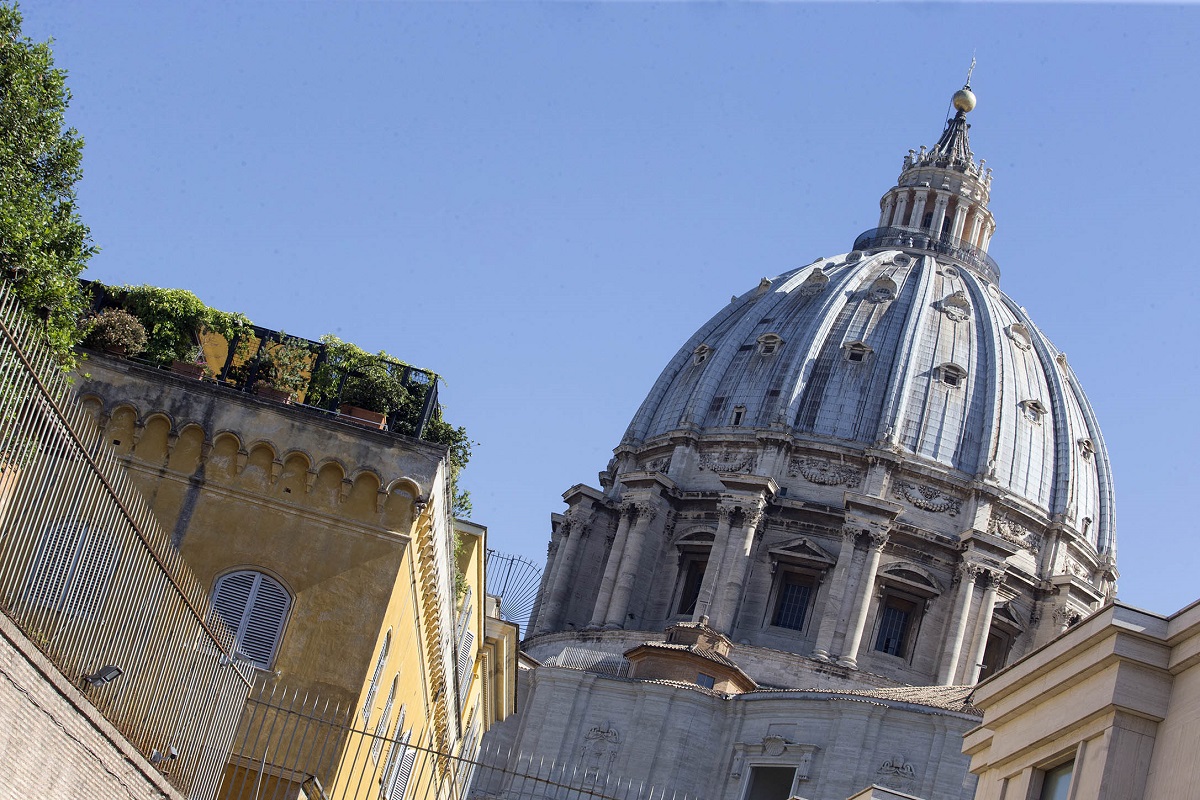Italian foreign policy has a long tradition of keeping in close contact with the Vatican. The two institutions often share interests and objectives, even if they go about them in different manners.
This day and age make no exception. Hence, on Thursday, the Italian foreign minister Luigi Di Maio invited the Holy See’s Secretary for Relations with States, Archbishop Paul Richard Gallagher, at his ministry. The pair discussed a plethora of dossiers, from the Middle East to Venezuela through to religious freedoms, climate change and the coronavirus.
During the talks, Mr Di Maio emphasized Italy’s role as a stabilisation force in the Mediterranean regional crises. In Libya, for instance, the country is still supporting a permanent ceasefire and a diplomatic solution, as well as the reopening of the oil fields as a manner of stabilising the country through the economy.
As for Libya, Italian support goes through humanitarian and military channels to Lebanon, too. Rome intends to remain in Lebanon to offer aid as well as army support through the UN operation UNIFIL. The Holy See is also focussed on the area, as demonstrated by the Cardinal Secretary of State Pietro Parolin, who last week travelled to Harissa for the day of fasting and praying called for by Pope Francis.
The Vatican and Rome both reacted cautiously to the normalisation of relations between Israel and the UAE, strongly favoured by the US. Mr Di Maio spoke positively about it bur remarked that a true Middle Eastern stabilisation could not be devoid of a two-State solution agreed directly between the Israelis and the Palestinians; a stance shared by the Vatican, albeit with more discretion.
That same discretion was employed by the Vatican in Venezuela, where it shies away from boisterous actions but often act under the radar to facilitate talks. Still, it is not forgetful: last month pope Francis met with Michelle Bachelet, the UN’s High Commissioner for Human Rights, to discuss the oppressive regime of Venezuelan president Nicolás Maduro,
The Venezuelan dossier is vital for both the Holy See and Rome, as one of the world’s biggest Italian communities resides in Venezuela, and the country is fervently Catholic. Mr Di Maio recently praised the Vatican’s role in an interview to Formiche.net, but he advocated for a more concrete and outspoken support. In the same interview, he clarified Italy’s position towards Mr Maduro’s regime, condemning it as “authoritarian” and illicit, and called for fresh elections.
Mr Di Maio and Mr Gallagher also touched upon the Italian efforts within the Inclusive Vaccine Alliance and GAVI, which strive for the equal distribution of a Covid-19 vaccine when it becomes available and work towards granting it to over 90 developing countries, respectively.
Mr Di Maio also promised that the Italian government would relay Pope Francis’ calls to tackle climate change and the protection of the environment. In 2021, Rome will be president of the G20 and co-president of the COP26 climate congress.
Finally, the pair also talked about religious freedom, “one of [Italy’s] priorities in [its] mandate for the UN’s Human Rights Council” according to Mr Di Maio. The item is also at stage front in the presidential campaigns for US President Donald Trump and his Democratic rival Joe Biden.
Agostino Giovagnoli, an expert historian we reached out to, noted that the Holy See is “only partially” in sync with the US State Department as it’s wary of being exploited or “dragged into the political manoeuvring.” It’s not by chance that the Americans didn’t invite the Vatican when they launched the International Religious Freedom Alliance, he said.
Mr Giovagnoli laid bare the “strong traditionalist tendency” that affects Catholic and Evangelical Americans alike. “This component weighs significantly in the US’s episcopate and it is not akin to the Holy See’s positions. It’s a front of the so-called ‘culture wars’.”
As for the Rome-Vatican relations, the historian called them “good, not exceptional”, while acknowledging that some Italian politicians at the highest levels are in very good terms with the leader of the Church – which still doesn’t translate directly in full collaboration on key issues, as the Venezuelan dossier shows.
The expert also dismissed the rumours of a meeting between the Chinese foreign minister Wang Yi and Mr Gallagher during the former’s visit to Rome. He declared himself “not surprised” at the absence of the China-Vatican dossier in the archbishop’s discussion with Mr Di Maio, as China and the Holy See prefer to keep their bilateral communication private (notwithstanding the Chinese hacking of Vatican servers that occurred this summer).
Nonetheless, Beijing has been optimistic about the appointment of Chinese bishops this coming September 22nd. The Church will also abstain from intervening on the Hong Kong matter, as protocol demands, but Mr Giovagnoli mentioned that Hong Kong’s Cardinal, Tong Hon, has already spoken out clearly about the Chinese repression.








